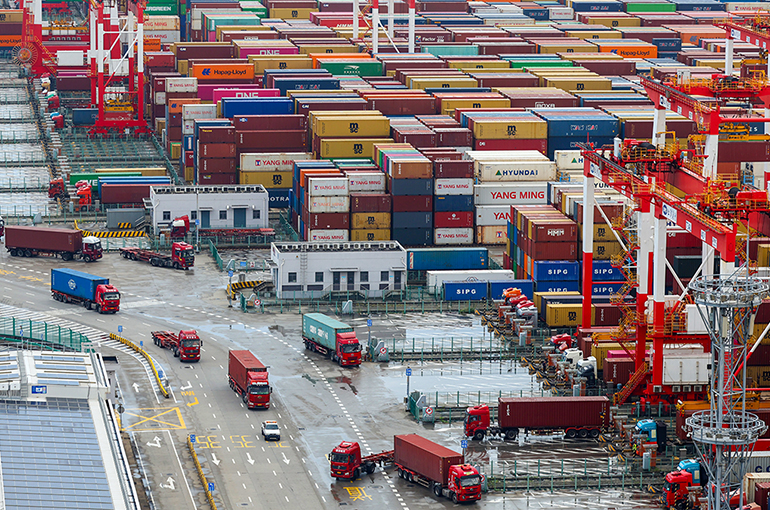 Chinese Exporters Welcome 90-Day Delay in US Tariff Hikes
Chinese Exporters Welcome 90-Day Delay in US Tariff Hikes(Yicai) Aug. 13 -- Chinese foreign trade firms remain calm and optimistic after China and the United States agreed to extend their suspension of additional tariffs for another 90 days, with many exporters focusing on cost reduction and market diversification to weather potential future hikes.
The two countries issued a joint statement yesterday announcing the delay in imposing an additional 24 percent in tariffs, extending the truce that was just about to expire.
Several exporters told Yicai they were prepared for tariff changes, having already cut costs and enhanced product value.
Yang Wenjun, executive deputy general manager of Shuangma Plastic Manufacturing, a Walmart supplier, said US buyers have used the reprieve to stock up, resulting in a recent increase in orders.
Zhang Chao, an executive at a Jiangsu-based auto parts exporter, said orders from the US have stayed stable this year, though high tariffs continue to squeeze profit margins. His firm has responded by cutting costs, improving efficiency, and adjusting prices. Despite these challenges, it remains committed to expanding abroad, including building overseas warehouses and developing supply chains in the US and nearby regions.
Zhang Bin, general manager of Shanghai-based Solid Stainless Steel Products, said US orders have rebounded to about 80 percent of pre-tariff levels.
While over 30 percent of peers in the steel kitchenware industry have moved production overseas, Zhang Bin's firm continues manufacturing in Shanghai, focusing on reducing costs, boosting efficiency, and strengthening design and core technologies to enhance brand and product value.
Diversification and Cooperation
Some exporters are compensating for weaker US demand by targeting other markets.
Li Ping, head of a Zhejiang-based kitchenware exporter, said US orders have fallen 20 percent, but overall performance remains positive thanks to diversification. Li noted that rising supply chain costs are increasingly being passed to US consumers, dampening demand.
Wang Jia, assistant researcher at the Institute of Economics at the Shanghai Academy of Social Sciences, said stricter rules on product origins are likely as the US applies varying tariffs to different countries. Strengthening regional integration, Wang said, will help non-US economies, including China, respond collectively to tariff volatility.
The researcher added that China should reduce reliance on any single market and continue upgrading its manufacturing sector, accelerating shifts toward high-end, digitalized, and green development.
Customs data show that in the first seven months of this year, China’s exports to the US fell 12.6 percent, while total exports rose 6.1 percent year-on-year, driven by strong growth in shipments to the European Union and the Association of Southeast Asian Nations.
Editor: Emmi Laine